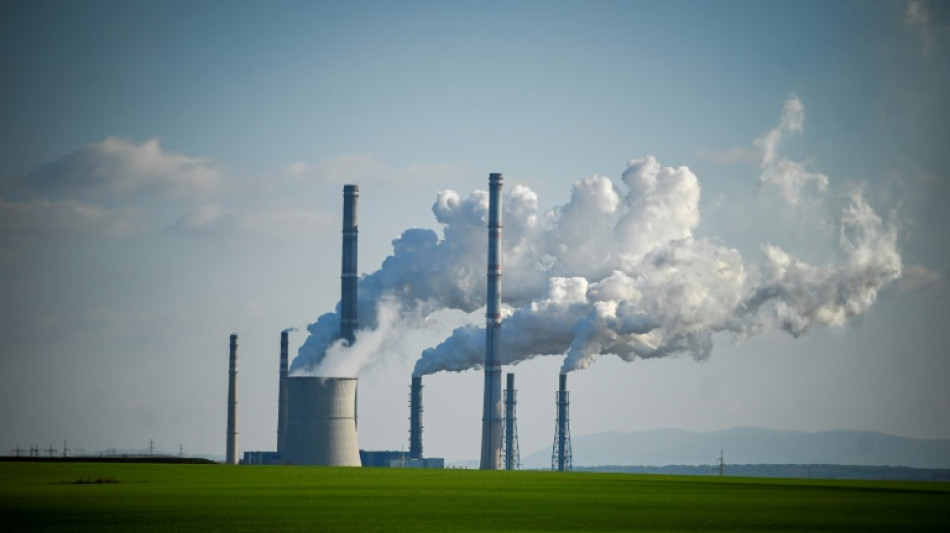
-
 Japan PM's tax giveaway roils markets and worries voters
Japan PM's tax giveaway roils markets and worries voters
-
Amid Ukraine war fallout, fearful Chechen women seek escape route

-
 Rybakina surges into Melbourne semis as Djokovic takes centre stage
Rybakina surges into Melbourne semis as Djokovic takes centre stage
-
Dollar struggles to recover from losses after Trump comments

-
 Greenland blues to Delhi red carpet: EU finds solace in India
Greenland blues to Delhi red carpet: EU finds solace in India
-
Will the EU ban social media for children in 2026?

-
 Netherlands faces 'test case' climate verdict over Caribbean island
Netherlands faces 'test case' climate verdict over Caribbean island
-
Rybakina stuns Swiatek to reach Australian Open semi-finals

-
 US ouster of Maduro nightmare scenario for Kim: N. Korean ex-diplomat
US ouster of Maduro nightmare scenario for Kim: N. Korean ex-diplomat
-
Svitolina credits mental health break for reaching Melbourne semis

-
 Japan's Olympic ice icons inspire new skating generation
Japan's Olympic ice icons inspire new skating generation
-
Safe nowhere: massacre at Mexico football field sows despair

-
 North Korea to soon unveil 'next-stage' nuclear plans, Kim says
North Korea to soon unveil 'next-stage' nuclear plans, Kim says
-
French ex-senator found guilty of drugging lawmaker

-
 US Fed set to pause rate cuts as it defies Trump pressure
US Fed set to pause rate cuts as it defies Trump pressure
-
Sleeping with one eye open: Venezuelans reel from US strikes

-
 Venezuela's acting president says US unfreezing sanctioned funds
Venezuela's acting president says US unfreezing sanctioned funds
-
KPop Demon Hunters star to open Women's Asian Cup

-
 Trump warns of 'bad things' if Republicans lose midterms
Trump warns of 'bad things' if Republicans lose midterms
-
Russian strikes in Ukraine kill 12, target passenger train

-
 With Maduro gone, Venezuelan opposition figure gets back to work
With Maduro gone, Venezuelan opposition figure gets back to work
-
Celebrities call for action against US immigration raids

-
 Rubio to warn Venezuela leader of Maduro's fate if defiant
Rubio to warn Venezuela leader of Maduro's fate if defiant
-
Denver QB Nix 'predisposed' to ankle injury says coach

-
 Lula, Macron push for stronger UN to face Trump 'Board of Peace'
Lula, Macron push for stronger UN to face Trump 'Board of Peace'
-
Prass stunner helps Hoffenheim go third, Leipzig held at Pauli

-
 Swiss Meillard wins final giant slalom before Olympics
Swiss Meillard wins final giant slalom before Olympics
-
CERN chief upbeat on funding for new particle collider

-
 Trump warns US to end support for Iraq if Maliki returns
Trump warns US to end support for Iraq if Maliki returns
-
Judge reopens sexual assault case against goth rocker Marilyn Manson

-
 South Korea's ex-first lady to learn verdict in corruption case
South Korea's ex-first lady to learn verdict in corruption case
-
Rosenior dismisses Chelsea exit for 'untouchable' Palmer

-
 Markram powers South Africa to win over West Indies
Markram powers South Africa to win over West Indies
-
Vladimir Padrino: Venezuela's military power broker

-
 Amazon closing Fresh and Go stores in Whole Foods push
Amazon closing Fresh and Go stores in Whole Foods push
-
Koepka nervous about game and fans in PGA Tour return

-
 Trump's Iowa trip on economy overshadowed by immigration row
Trump's Iowa trip on economy overshadowed by immigration row
-
Dortmund coach says Inter Milan are improved under Chivu

-
 US border chief in Minneapolis as Trump tries to calm crisis
US border chief in Minneapolis as Trump tries to calm crisis
-
What to know about America's colossal winter storm

-
 Iran warns against 'instability' after US strike group arrives
Iran warns against 'instability' after US strike group arrives
-
GM reports quarterly loss but boosts shareholder returns

-
 US banks fight crypto's push into Main Street
US banks fight crypto's push into Main Street
-
NFL Bills make offensive coordinator Brady new head coach

-
 TikTok settles hours before landmark social media addiction trial
TikTok settles hours before landmark social media addiction trial
-
Newcastle braced for 'ultimate test' against PSG after storm disruption

-
 Brook blitz ends Sri Lanka's unbeaten home run, England clinch series
Brook blitz ends Sri Lanka's unbeaten home run, England clinch series
-
LVMH 2025 net profit drops 13% to 10.9 bn euros

-
 Philip Glass pulls Kennedy Center premiere after Trump takeover
Philip Glass pulls Kennedy Center premiere after Trump takeover
-
Slot says Liverpool must fix 'very bad cocktail'


UN report to lay out options to halt climate crisis
Nearly 200 nations gather on Monday to confront a question that will outlive Russia's invasion of Ukraine: how do we stop carbon pollution overheating the planet and threatening life as we know it?
The answer is set to arrive on April 4 after closed-door, virtual negotiations approve the summary of a phonebook-sized report detailing options for drawing down greenhouse gases and extracting them out of thin air.
"The science is crystal clear, the impacts are costly and mounting, but we still have some time to close the window and get ahead of the worst of them if we act now," said Alden Meyer, a senior analyst at climate and energy think tank E3G.
"This report will supply the answers as to what we need if we're serious about getting there."
In August 2021, the Intergovernmental Panel on Climate Change (IPCC) laid out the physical science: changes in global warming and sea level rise, along with shifts in the frequency, duration and intensity of cyclones, heatwaves, droughts and other forms of extreme weather.
That was the first instalment of a three-part assessment, the sixth since 1990. It projected that Earth's surface temperature will rise 1.5 degrees Celsius above preindustrial levels, perhaps within a decade.
A 1.5C cap on global warming -- the aspirational goal of the 2015 Paris climate accord -- has been embraced as a target by most of the world's nations.
Current carbon-cutting commitments under the treaty, however, still put us on a catastrophic path toward 2.7C of warming by 2100.
- A liveable future -
Part two of the more than 10,000-page report -- described by UN Secretary General Antonio Guterres as an "atlas of human suffering" -- catalogued past and future climate impacts on human society and the natural world.
Delaying climate action would severely reduce the chances of a "livable future," it concluded.
Part three -- spread across thousands of pages -- is about how to slow and stop warming, with separate chapters on the key sectors where rapid and deep change is critical: energy, transport, industry, agriculture, among others.
"We are talking about the large-scale transformation of all the major systems," climate economist and co-author Celine Guivarch told AFP.
It also focuses on ways to curb carbon emissions by reducing demand, whether through making buildings more energy efficient or encouraging shifts in lifestyle, such as eating less beef and not flying half-way around the world for a week-long holiday.
The report details more than a dozen techniques for pulling CO2 out of the air, which will be needed to compensate for sectors -- such as aviation and shipping -- that are likely still carbon polluters by mid-century.
"Many things have changed" since the previous three-part report, which came out eight years ago, said Taryn Fransen, an analyst at the World Resources Institute.
The Paris Agreement -- the first climate deal in which all countries pledged action -- was signed.
The world has seen an endless crescendo of deadly climate impacts, from drought to fire to floods.
The price of renewable energy, key to the reducing emissions, has fallen below the cost of fossil fuels in most markets.
- 'Inflamed situation' -
The IPCC "solutions" report draws from hundreds of models projecting development pathways that keep Earth within the bounds of the Paris temperature goals.
"There are scenarios that show high renewables and low nuclear, and scenarios that show the opposite," said Fransen.
"This report lays out those pathways. Now it's up now to our leaders to take that to heart."
Besides feeding into UN political negotiations, which resume in November in Egypt at COP 27, the IPCC findings will also be important "for the conversation going on in the US and Europe around the need to transition away from Russian oil and gas," said Meyer.
The head of the IPCC delegation from Ukraine made this point in a dramatic statement at a closed plenary in February, only days after Russian troops invaded her country.
"Human-induced climate change and the war on Ukraine have the same roots -- fossil fuels -- and our dependence on them," said Svitlana Krakovska, according to multiple sources.
The war in Ukraine will likely come up during the two-week IPCC negotiations starting Monday.
"It's a more enflamed situation," said Meyer. "I don't know how this is gonna play out but it's something to watch."
H.Seidel--BTB




